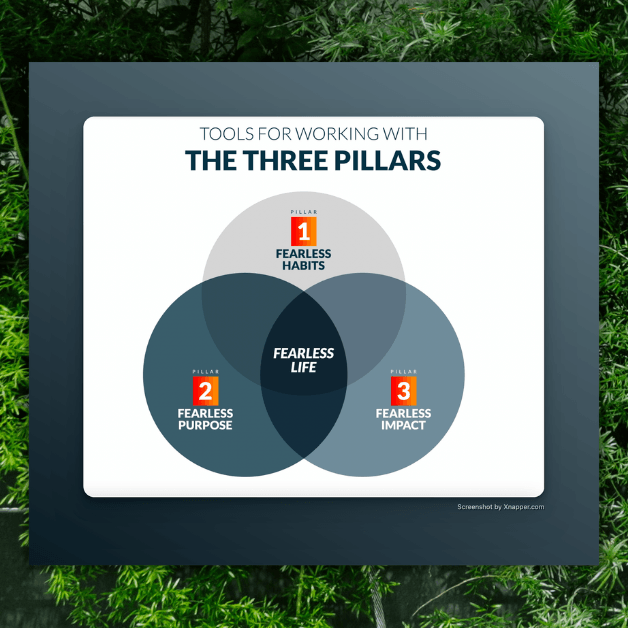By Leo Babauta
More than 3,300 people signed up for the 30-Day Learning Challenge (wow!), and some of you might be finding a dip in your motivation for learning.
That’s OK. We all go through dips in motivation sometimes. The key is to figure out a better motivator, and adjust your plan.
Today I’d like to talk about a few common motivations that don’t work that well, and then share what I’ve found to be the best motivations for learning – ones that keep you going strong even after a month or two.
Let’s start with some less-than-best motivations:
- A big goal. People are often very motivated in the beginning of any challenge by setting a big goal for themselves, and there’s nothing wrong with this at all. However, I’ve found that without other motivation, you can lose steam after a week or two. Why? Because you don’t achieve the big goal in a week or two, and in fact if it’s a long ways away, after a couple of weeks you might not be much closer. So go ahead and set a big goal, but have something else that will motivate you in the short term.
- Wanting to make quick progress. This is something I’ve experienced, and I’m not alone – we want to make a lot of progress in a short amount of time, and it can be frustrating and disappointing when we don’t make the quick progress we’d like. The truth is that any real progress takes time, and while you might get a quick spurt of learning done here and there, most often it comes with dedication and months of work. That said, if you have realistic expectations, seeing yourself make modest progress can be very motivating.
- It sounds nice. Lots of times we take on a challenge because we think it would be cool to complete it. I think it would be cool to be able to do some amazing magic tricks, for example. But in the end, I’m not that motivated to put in the hard work required to do some really skilled magic tricks. That takes hours and hours of practice, weeks and weeks even, and I don’t care that much about it. I just think it would be cool. If you don’t care that much about the learning goal, you’ll quit when things get hard.
- Creating your ideal self. Often we have a list of things we’d like to learn or improve, because we want to reach an ideal we have for ourselves. We want to be fit, healthy, mindful, talented, multi-lingual, accomplished and more. And while there’s nothing wrong with having these ideals, the truth is that you lose motivation after a week or two if this is your primary driver. Why? Because at some point, you stop caring about the ideal. You feel that it’s not worth the effort. You’re already pretty cool as you are, without needing to improve.
OK, so these common motivators don’t work so well … but what does work? Let’s talk about the things I’ve found to be good long-term motivators.
The Best Motivations
These five things are great motivators that can last beyond a week or two, in my experience:
- Curiosity. This is my favorite motivator! When I take on a new learning challenge, it works best if I’m genuinely curious about something. If something is mildly interesting to me, I probably won’t stick with it for long. But if I want to go deeper and deeper, and learn everything I can about something, I will stick with it. So try to examine how much curiosity you have for the thing you’re learning. You can spark the curiosity sometimes, but other times it’s better to scrap what you’re learning and find something that really gets you curious.
- Exploring something new. For me, it’s often not about accomplishing something cool or reaching some ideal or goal … and more about exploring. This is obviously very related to curiosity, but for me, allowing myself to explore in a less disciplined way is often the more sustainable method of learning. I let myself play, let my curiosity lead me, let the discovery be the goal. Try loosening up on your learning and allow yourself to have fun discovering.
- Doing it with someone else. I love this method – often I’ll take on a challenge with Eva or a friend, or one of my kids. It’s fun doing something with someone else, and often if one person loses motivation, the other person will help keep you both on track. I also am very motivated by wanting to help the other person, and while doing something for myself is also a great goal, doing it for someone else helps a lot.
- Caring deeply about it. As I mentioned above, we sometimes don’t care that much about creating an ideal self, or reaching big long-term goals. So what do we care about? That’s a question we have to ask ourselves, and if you have an answer, that’s a great thing to devote yourself to learning. If you don’t have an answer, then devote yourself to exploring that question by learning different things.
- To prove that you can take on difficult things. For years, I quit when the learning got difficult. But that’s when real learning happens – when things are difficult and you push through, when you are failing and wanting to quit. We learn by pushing ourselves into uncomfortable areas, and if we always quit, we’ll never get very deep into anything. So my best motivation recently is to prove to myself that I can stick to difficult learning challenges. So far, I am proving myself right.
